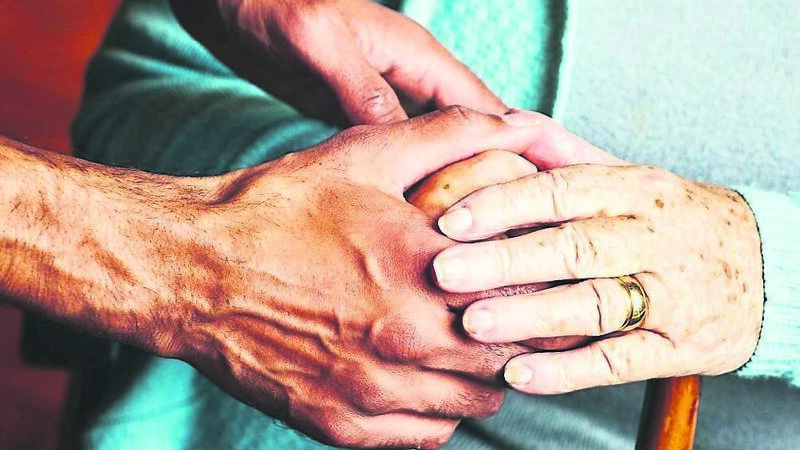What supports are available for carers in Ireland?

Find out what payments you may qualify for if you are a carer
PEOPLE providing care for family members often are so busy with their responsibilities that they don’t always have time to look at what supports are available to them.
Some people don’t even think of themselves as carers as they consider their work as part of an unspoken promise to be there for loved ones when they need them.
It is important they know that carers may be entitled to a number of supports from the Department of Social Protection.
The two main social welfare payments for those providing full-time care are Carer’s Allowance and Carer’s Benefit. You may also qualify for an annual Carer’s Support Grant.
Another consideration would be taking Carer’s Leave from work to care for a loved one. Secondary benefits may also be available.
Carer’s Benefit is a short-term payment paid for up to two years to people who give up employment to care on a full-time basis for someone who requires full-time care and attention. It is PRS- based and you have to have a certain number of PRSI contributions paid. People who are self-employed and paying a Class S PRSI contribution will not qualify.
Carer’s Allowance is for people caring on a full-time basis for someone who requires full-time care and attention and will require it for at least 12 months. You must satisfy a means test and the habitual residency condition to qualify for Carer’s Allowance.
To claim either, you must complete an application form and submit it to the DSP.
A person is seen as needing full-time care when they need continual supervision to avoid danger to themselves, or they need continual supervision and frequent assistance with normal bodily functions. For example, help to walk and get about, eat or drink, get washed or dressed.
The Department of Social Protection will decide if the person needs full-time care. This decision will be based on the information that the Carer provides on the application form.
The person being cared for must have their doctor complete, sign and stamp the Medical Report which is part of the Carer’s Benefit and Carer’s Allowance application form. This Medical Report is not needed if the person being cared for is a child getting Domiciliary Care Allowance. You or the person needing care must not be living in a hospital or institution. However, you can continue to be seen as providing full-time care if you or the person being cared for is having medical or other treatment in a hospital or institution for not longer than 13 weeks.
The time spent providing care must not be less than 35 hours per week, over 5-7 days. If you are away, you must be able to arrange full-time care for the person you care for.
The person does not have to give up their job if they are applying for Carer’s Benefit. They can apply for Carer’s Leave, which allows employees to leave work temporarily to provide full-time care and attention for someone. You can take carer’s leave for a minimum of 13 weeks and up to a maximum of 104 weeks.
Carer’s leave from employment is unpaid but your job will be kept open for when you return. However, to get carer’s leave, you must have worked for your employer for 12 months without a break in employment. Employers are entitled to at least six weeks written notice of your intention to take carer’s leave. The person you will be caring for must need full-time care and attention.
While on Carer’s Benefit or Carer’s Allowance, you can be employed, self-employed, in training or in education outside the home for up to a maximum of 18.5 hours per week. If on Carer’s Benefit, the maximum amount you can earn is €350 per week after tax, PRSI & Union dues are deducted.
Currently, if you are single, €350 of your total weekly income is not taken into account in the means test for Carer’s Allowance. If you are married, in a civil partnership or cohabiting the first €750 of your combined total weekly income is not taken into account. This will change from June, 2024, when the income disregard for Carer’s Allowance will increase to €450 for a single person and €900 for a couple.
The means test for Carer’s Allowance
You must be providing full-time care and attention to a person who requires that level of care. In addition, you must be habitually resident in the State and pass a means test. In certain circumstances you may be eligible for Half Rate Carer’s Allowance.
The main sources of income included in the means test for Carer’s Allowance are any cash income and capital income - including savings, investments, shares or any property you have (but not your own home). The first €50,000 of capital is not taken into account. Any payment from the DSP is not included in the means test. You can get up to €14,000 per year for renting out a room in your own home without it affecting your payment.
Your payment is made up of a personal rate for yourself and extra amounts for any child dependants. Carer’s Allowance has no qualified adult payment.
Carer’s Benefit: €249 per week if caring for one person and €373.50 if caring for two.
Carer’s Allowance: €248 per week if caring for one person and €372, if caring for two people and you are under 66. If you are aged 66+, you will receive up to €286 for one person and €429, if you are caring for two people.
You can also get a child increase if you have a qualified child, and if you are on Carer’s Allowance, you will get a higher rate when you are aged over 66
If you are in one of these situations you may qualify for half-rate Carer’s Allowance:
Already getting Carer’s Allowance but also meet the qualifying criteria for another social welfare payment
Changed from another social welfare payment to get Carer’s Allowance
Caring for someone and being claimed for by a spouse, civil partner or cohabitant
Getting a social welfare payment other than Carer’s Allowance and caring for someone
You cannot get half-rate carer’s allowance if you are in receipt of a jobseeker’s payment.
The Carer’s Support Grant is €1,850 paid once a year by the Department of Social Protection (DSP), usually on the first Thursday in June, for each person you are caring for. It is not taxable. You cannot be working outside the home for more than 18.5 hours or signing for Jobseeker’s Credits. You can apply for this even if you are not receiving Carer’s Allowance or Carer’s Benefit.
You do not have to live with the person you are caring for, but non-resident care situations may require investigation by a Social Welfare Inspector before consideration by the Deciding Officer. A direct system of communication must exist between the carer’s residence and that of the care recipient. This may be a telephone or alarm-type system.
The care recipient must not already be receiving full-time care and attention within his or her own residence from another person.
This year, a Long-Term Carers Contribution scheme will be introduced whereby, if you have been a full-time carer for at least 20 years, you can get Long-Term Carers Contributions to help you qualify for the State Pension (Contributory). A Long-Term Carers Contribution is the same as a paid contribution on your PRSI record for each week you provide full-time care.
If you have been providing full-time care for less than 20 years, you may be able to avail of the Homemaker’s Scheme or the Home Caring Periods Scheme. Under these, a certain period of time out of the workforce caring would not affect any entitlement to the State Pension (Contributory).
If you get Carer’s Allowance you may also get the Free Household Benefits Package (if you are living with the person you are caring for) and Free Travel. If you get Carer’s Benefit or Carer’s Allowance, at full or half-rate, you are eligible for a GP visit card. There are also some tax credits the family can avail of.







 App?
App?




